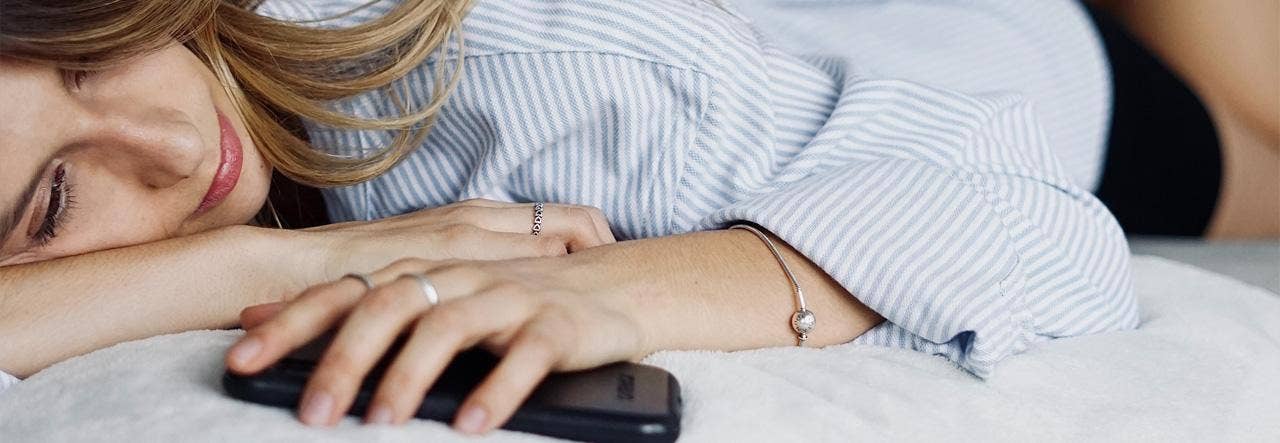Are you one of the four in 10 Americans that bring your phone into bed with you? All those mindless minutes of scrolling through social media helps you wind down, right?
Wrong!
The truth is, using any screen in bed can seriously damage the quality of your sleep in a number of ways.
For one, multiple studies have reported that blue light suppresses the body’s ability to produce melatonin at night more than any other type of light. This all-important sleep hormone is crucial to falling and staying asleep, which equates to restorative rest.
Another reason blue light is damaging to healthy sleep is because it impacts your circadian rhythm—a critical component to getting a full night of rest.
Your circadian rhythm tells your body when to sleep and when to wake up. Any disruptions to this cycle will result in poor sleep quality.
Plus, because blue light can affect your melatonin levels, this also means it can have an impact on your circadian rhythm as well. Without healthy levels of melatonin being produced as you sleep, your circadian rhythm will be thrown off balance.
Last but not least, not unplugging from bed can cause digital eye strain, which can make falling asleep challenging and uncomfortable. In today’s digitized world, we are already exposed to so much blue light during our day-to-day routines.
If your eyes ever feel sore or dry, or your vision is less clear than usual, these effects can be directly related to blue light exposure.
Whether you feel discomfort at night from digital eye strain or from another source, this can greatly affect your ability to fall asleep—and therefore your sleep quality.
Making an effort in your beditme routine to unplug before bed can boost your sleep quality and help you fully recharge. To get started tonight, here are 3 things you can do to unplug and sleep better.
- Turn on airplane mode around bedtime: A good way to shut down the screen time before bed is to designate certain hours where you keep your phone on airplane mode. In fact, it’s a good idea to keep airplane mode on all night, which will help prevent being woken up by a spam call at 3 a.m. Knowing that your phone isn’t about to ring or beep can also give you the freedom to simply relax and wind down your day.
- Reduce your time spent on social media: Start a social media detox and turn off your push notifications on your phone or tablet. You can even download apps to block social media applications during set hours if you need the extra accountability. Try apps like Offtime (for iOS and Android), ClearLock (for Android) or BreakFree (for iOS and Android) to help curb your distractions on screen. Many phones also make it easy to monitor your social media usage through their in-built settings.
- Make the bedroom a screen-free zone: Make a household rule that the bedroom is a screen-free zone, or that a certain period of time in the evening is for screen-free activities. It might be difficult at first, but after some practice, leaving the screens behind will be second nature. You’ll probably even grow to love this time of day more than other times spent on screens, as it will allow you to reconnect to interests you “never had time for,” like meditating, reading, writing, or doing a little self care.
At Naturepedic, we strive to promote healthy sleep habits that encourage deep, restorative sleep every night. This is why all of our mattresses and sleep products are made with GOTS-certified organic materials.
To learn more about our certifications and how they contribute to healthy, stress-free sleep, please keep reading about it here on our blog.
 BABY
BABY  KIDS
KIDS  ADULT
ADULT  LEARN
LEARN  STORES
STORES 